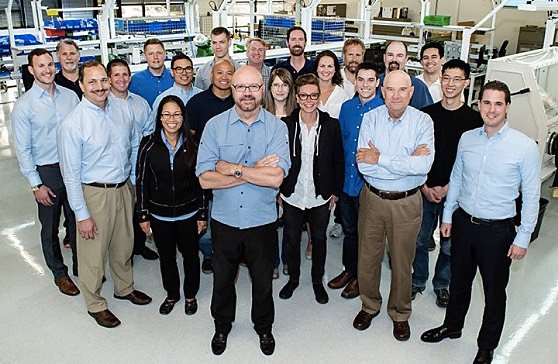Paramedical Treatments for AADC Deficiency Patients
Written by |

Paramedical treatment is an important aspect in the care of many chronic diseases, including aromatic l-amino acid decarboxylase (AADC) deficiency.
Here is a look at some of the different areas of paramedical treatment, which may help in managing your child’s symptoms and improving their quality of life.
What is paramedical treatment?
Paramedical treatment, also known as allied health, involves health professionals outside of doctors, dentists, and nurses. These health care workers are often licensed practitioners, such as physical, occupational, and speech therapists; counselors, and assistants. Their work focuses on patients’ life quality.
What services might an AADC deficiency patient need?
There are a number of different paramedical treatment approaches that can help your child.
Physiotherapy
Physiotherapy can have a large impact on the quality of life of children with AADC deficiency. Many patients have weak and stiff muscles, and movement disorders. Physiotherapists can give your child exercises to do at home to improve strength and flexibility, and teach them how to better control their movements.
Occupational therapy
A form of treatment called occupational therapy can also be very important for children with AADC deficiency. This type of therapy helps to equip your child with different skills and strategies for use with everyday activities. For example, an occupational therapist can teach your child how to use adaptive devices to move around the house, or how best to get dressed. They also work to motivate your child through games and other types of “play” that improves their focus, hand-eye coordination, and body control.
Speech and language therapy
Children with AADC deficiency may experience delays in speech and language. Speech therapy can help your child learn how to properly make the sounds necessary for speech. It can also help them better their understanding of language, using various approaches.
Some with this disease may be non-verbal. Speech therapy can help these children communicate with gestures or other communication aids. A speech therapist can help your child with swallowing problems, making mealtime easier on you both.
Aquatic therapy
Aquatic therapy is a specific type of physiotherapy that takes place in a pool. It can be helpful if your child is very weak or has poor balance, since it reduces the weight on the joints and lowers the risk of falls.
Equine therapy
Equine (horse) therapy is another form of physiotherapy that may help patients with AADC deficiency. Here, children ride a horse guided by trained assistants, including those at their side to make sure they do not fall off. Your child can work on their balance, focus, and strength as the horse goes through a series of carefully guided movements.
Music therapy
Children with AADC deficiency often have short attention spans, in addition to developmental delays. Music therapy can help increase their engagement in developmental tasks, like the use of rhythm in developing coordination. Music therapy can also be combined with other types of therapy, like physiotherapy, occupational therapy, and speech therapy, to increase engagement.
Nutritional assistance
Eating and swallowing can be difficult for children with AADC deficiency. Dietary support from a nutritionist can help you make sure that your child is receiving enough calories and nutrients.
Neuropsychological treatment
Psychological and emotional problems can be common to those with AADC deficiency, and include dysphoria (a general uneasiness), mood swings, and irritability. Neuropsychological support may be a source of treatment options and coping strategies that help your child regulate and better control their emotions.
Last updated: Jan. 13, 2021
***
AADC News is strictly a news and information website about the disease. It does not provide medical advice, diagnosis, or treatment. This content is not intended to be a substitute for professional medical advice, diagnosis, or treatment. Always seek the advice of your physician or other qualified healthcare providers with any questions you may have regarding a medical condition. Never disregard professional medical advice or delay in seeking it because of something you have read on this website.




